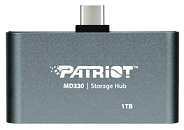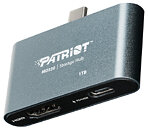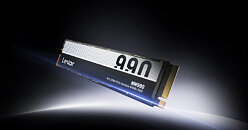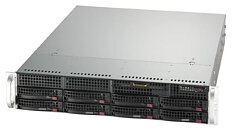
Patriot Memory Unveils MD330 Storage Hub
Patriot Memory officially unveils the MD330 Storage Hub—an industry-first, patent-pending design that combines 4K HDMI display output, USB-C PD 3.0 fast charging, and built-in storage in a single compact device. Engineered as a triple threat hub to support Projection × Storage × Power, the MD330 delivers up to 100 W of USB-C Power Delivery, allowing users to charge devices uninterrupted even during presentations or media streaming. With up to 1 TB of onboard storage, it meets the needs of fast data backup and media access on the go—creating a true mobile workstation experience in one device.
Engineered for modern multitasking, the MD330 Storage Hub supports up to 100 W of USB-C Power Delivery, keeping laptops, tablets, and smartphones fully charged—even during intensive tasks like streaming, gaming, or remote presentations. Its single USB-C connection handles video output and charging simultaneously, and it's widely compatible with laptops, tablets, smartphones, even supporting leading handheld gaming consoles like the Switch 1 and Steam Deck.
Engineered for modern multitasking, the MD330 Storage Hub supports up to 100 W of USB-C Power Delivery, keeping laptops, tablets, and smartphones fully charged—even during intensive tasks like streaming, gaming, or remote presentations. Its single USB-C connection handles video output and charging simultaneously, and it's widely compatible with laptops, tablets, smartphones, even supporting leading handheld gaming consoles like the Switch 1 and Steam Deck.








































































